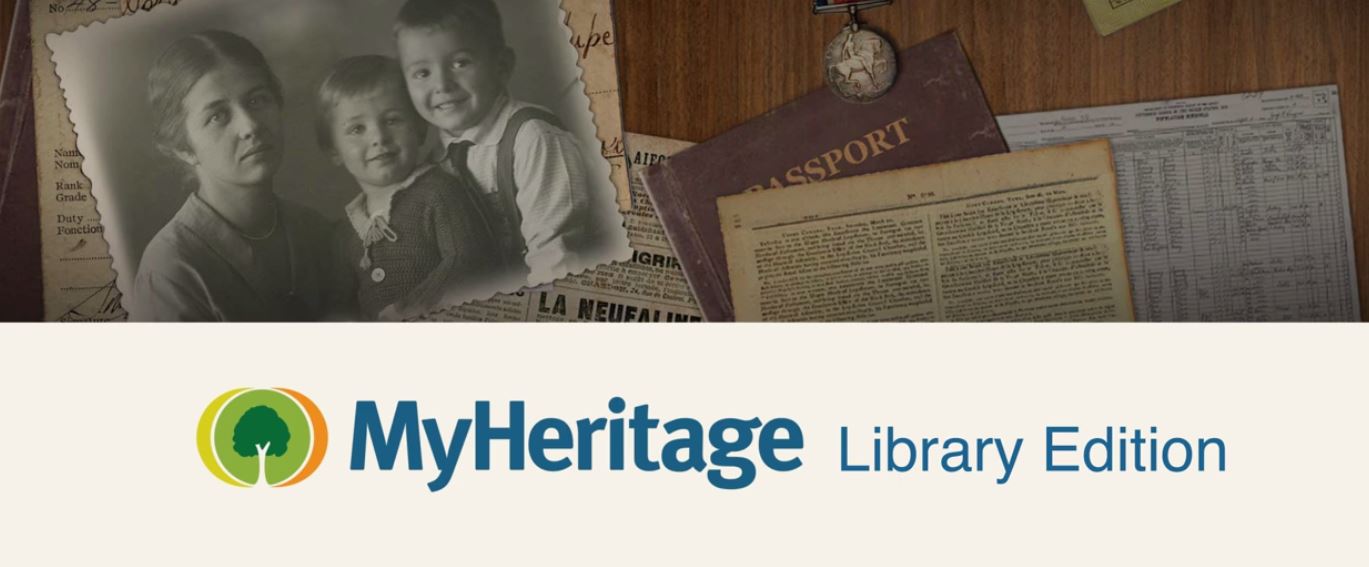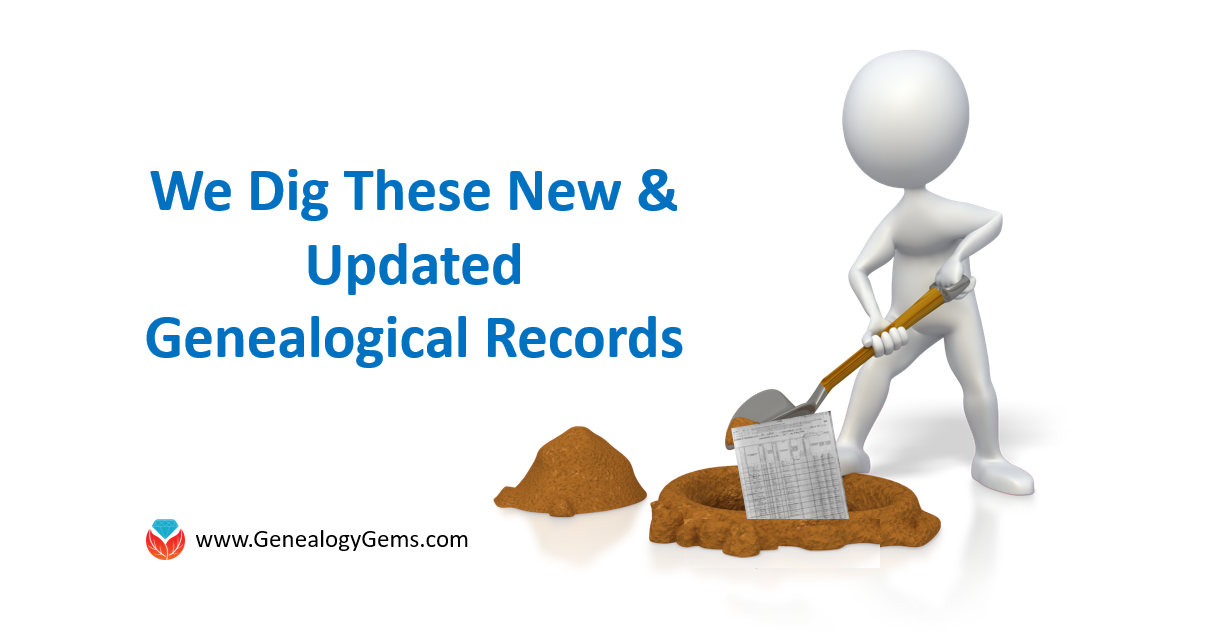by Lisa Cooke | Nov 12, 2014 | 01 What's New, Family History Library, FamilySearch, MyHeritage
MyHeritage has launched the MyHeritage Library Edition™ for libraries and other educational facilities around the world. Among the first to sign up for this service? The Family History Library.
has launched the MyHeritage Library Edition™ for libraries and other educational facilities around the world. Among the first to sign up for this service? The Family History Library.
MyHeritage Library Edition™ is now available for free at every FamilySearch family history center and Family History Library in the world. FamilySearch operates more than 4,700 family history centers in 134 countries. The centers are dedicated family history spaces, open to anyone with an interest in genealogical research. Visitors enjoy free access to historical records and personal assistance from staff to help them in their search for information. (Find a Family History Center near you.)
Here are some highlights to MyHeritage Library Edition:
- Record content: access to billions of historical documents, millions of historical photos and other resources in thousands of databases that span the past 5 centuries.
- Language diversity: Available in 40 languages–the industry’s most multilingual family history search engine.
- Powerful technology: Automatic handling of translations, synonyms and spelling variations of millions of names in multiple languages AND unique Record Detective™ technology that recommends additional records for each record discovered.
- Remote Access: Library members can use the MyHeritage Library Edition™ either at their local library or in the comfort of their own home using remote access.
See a video tutorial here for MyHeritage Library Edition.
Ask your local public or university library to subscribe!
by Lisa Cooke | Aug 19, 2016 | 01 What's New, British, Records & databases |
England emigrants to its U.S. colonies appear in new genealogy records online this week. Also: the 1891 New South Wales census; Czech church, land and school records; English parish records; and U.S. collections from the Freedmen’s Bureau, Marine Corps, Coast Guard and New England towns and cities.

Australia – New South Wales census
Findmypast.com has published over 200,000 records from the 1891 New South Wales census. The census collectors’ books are the source, as these are the only surviving documents. “While they provide less detail than a full census would, they can still be a useful aid to historians and genealogists alike in placing people at a specific moment in time,” states the collection description. “Each result will provide you with a transcript and image of the original collector’s books from the 1891 census. Original images may provide you with additional details, such as the number of individuals living in the same household or the number of residents who were Aboriginal or Chinese.”
Czechoslovakia – Church, Land and School
FamilySearch.org has added to its collection of Czech Republic Church Records spanning more than 400 years (1552-1963). You’ll find “images and some indexes of baptisms/births, marriages, and deaths that occurred in the Roman Catholic, Evangelical Lutheran, and Reformed Church parishes, as well as entries in those registers for Jews.” These are taken from parish registers and synagogue records now in regional archives. Though not fully indexed, the browse-only records number over 4 million! (Click here to learn how to use browse-only collections on FamilySearch.org; remember you can use the FamilySearch wiki for help in translating records in another language.)
FamilySearch has also added more than 850,000 browsable images to its existing collection of Czech Republic Land Records 1450-1889 and more than a million browsable images to the existing collection Czech Republic School Registers 1799-1953.
England Emigrants
Remember recently when we blogged about emigrant records, or those created about people leaving a country? Ancestry.com recently posted a new database called Emigrants in Bondage, which it says is “the most important list of ships’ passengers to be published in years.” Indexed are names of “more than 50,000 English men, women, and children… sentenced to be deported to the American colonies for crimes ranging from the theft of a handkerchief to bigamy or highway robbery.” The collection dates cover 1614 to 1775, after which time the British empire was not permitted to ship its “undesirables” to U.S. shores.
England – Parish records – Staffordshire and Sussex
Findmypast has added to its collections of church vital records for Staffordshire, England. Its browsable parish registers, 1538-1900 now includes 300,000 full-color page-by-page images. Separate databases of baptisms, wedding banns, marriages and burials have also been updated.
Also, more than 1.2 million indexed records have been added to FamilySearch’s collection of England, Sussex, Parish Records, dating 1538-1910. Sussex parish registers contain baptisms, marriages/banns, and burials. Date ranges of available records vary by locality; you will want to use the coverage table at the FamilySearch wiki to see what’s available.
U.S. – Freedmen’s Bureau Records
Now that the Freedmen’s Bureau collections have been fully indexed, FamilySearch is dumping them onto its website in batches. This week, they added these new databases:
U.S. – Military
FamilySearch.org has added just over 4 million indexed records to its database of United States Muster Rolls of the Marine Corps (1798-1937). The collection is described as an “index and images of muster rolls of the United States Marine Corps located at the National Archives. The records are arranged chronologically by month, then by post, station or ship.”
This week, the Fold3.com blog reminds us of its Coast Guard collections, in honor of the Coast Guard’s 226th birthday. Hundreds of thousands of search results on the site relate to Coast Guard history, from disapproved Navy survivors pension files to photos dating to the Civil War; accounts of shipwrecks or accidents, WWII war diaries for several units, images of insignia and Navy cruise books.
U.S. – New England
FamilySearch has posted a new index of New Hampshire Vital and Town Records Index for the years 1656-1938. It contains shy of half a million records of births, marriages and deaths. Entries were sourced from multiple archives in New Hampshire; the citation for each record is included in the index entry at the bottom of the record screen.
The New England Historic Genealogical Society has announced improvements to its databases for three New England cities, which now include more searchable fields and images. “Hartford, CT: General Index of Land Records of the Town of Hartford, 1639-1839, is now searchable by grantee and grantor name, and results provide the record type and volume and page of the record (available on microfilm at the Connecticut State Library). Boston, MA: Births, 1800-1849, and Dover, NH: Vital Records, 1649-1892, are now searchable by first name, last name, record type, family member names, date, and location.”
by Sunny | Feb 2, 2018 | 01 What's New, British, Findmypast, Irish, MyHeritage, Records & databases, Swedish |
Here’s a roundup of European genealogy records recently published online: Danish military conscription rolls and the 1845 census; English military, parish and burial records; Irish police register and digital news archives; records for Portugal, Slovenia and Spain;...
 has launched the MyHeritage Library Edition™ for libraries and other educational facilities around the world. Among the first to sign up for this service? The Family History Library.
has launched the MyHeritage Library Edition™ for libraries and other educational facilities around the world. Among the first to sign up for this service? The Family History Library.
